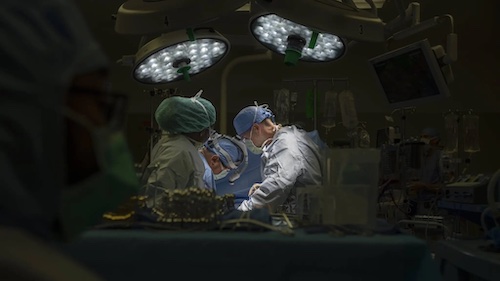
February 27, 2023 – The transplant center at Mayo Clinic in Florida has been performed nearly 9,000 transplants in the last 25 years. While it began as a liver transplant program, it started to transplant kidneys in 2000 and heart and lung transplants in 2001. Now, they are looking to the future with the Transforming Transplant initiative, which will transform the practice through research and innovation by redefining standards of care for patients in organ failure.
Physicians and scientists at Mayo Clinic in Florida are leading Transforming Transplant, a Mayo Clinic enterprise strategic initiative, to provide new clinical options for patients with organ dysfunction and failure. Related research and innovation breakthroughs will address challenges and limitations that have historically existed for the practice. This initiative is a partnership between Mayo Clinic’s organ transplant programs and the Center for Regenerative Biotherapeutics.
One of the initiative’s goals is to restore and improve the quality of donated organs that were previously considered inferior quality or medically risky to be transplanted. An example of this is the ex-vivo lung perfusion (EVLP) technology located at the Discovery and Innovation Building on Mayo Clinic’s campus in Jacksonville, Florida. Through a collaboration with United Therapeutics, donor lungs are flushed and ventilated while being monitored in isolation. This process allows transplant programs to reevaluate lungs that would otherwise have been discarded. The system circulates fluids through donor lungs, keeping them healthy longer than would be possible in cold storage.
The transplant team is also working with Carnegie Mellon University to advance research into the bioengineering of organs that could be used in place of human organs, eventually reducing the dependence on organ donation, decreasing the wait for donor organs, and increasing the transplant rate to help more patients in organ failure. This collaboration will transform the practice of medicine through biotherapeutic technologies that make organ transplantation more accessible, affordable and available to a broader population.
The Transforming Transplant initiative also seeks to advance research and accelerate innovation into stem cell-based therapies to prevent organ failure after transplant. Recently, a new study found that stem cells show the potential to slow organ rejection in lung transplant patients. This discovery offers hope of one day providing a cellular therapeutic to extend the lives of patients who would not qualify for a second lung transplant after organ rejection.
Another goal of the initiative is to prevent the need for transplant by diagnosing disease early and developing innovative treatment methods to reverse disease process with the ultimate goal of preventing organ failure in many patients. Artificial intelligence is an example of one innovation being used for early detection and treatment for disease, and in some cases provides information that may prevent the need for a transplant altogether. AI also is being used to predict rejection after transplant.
